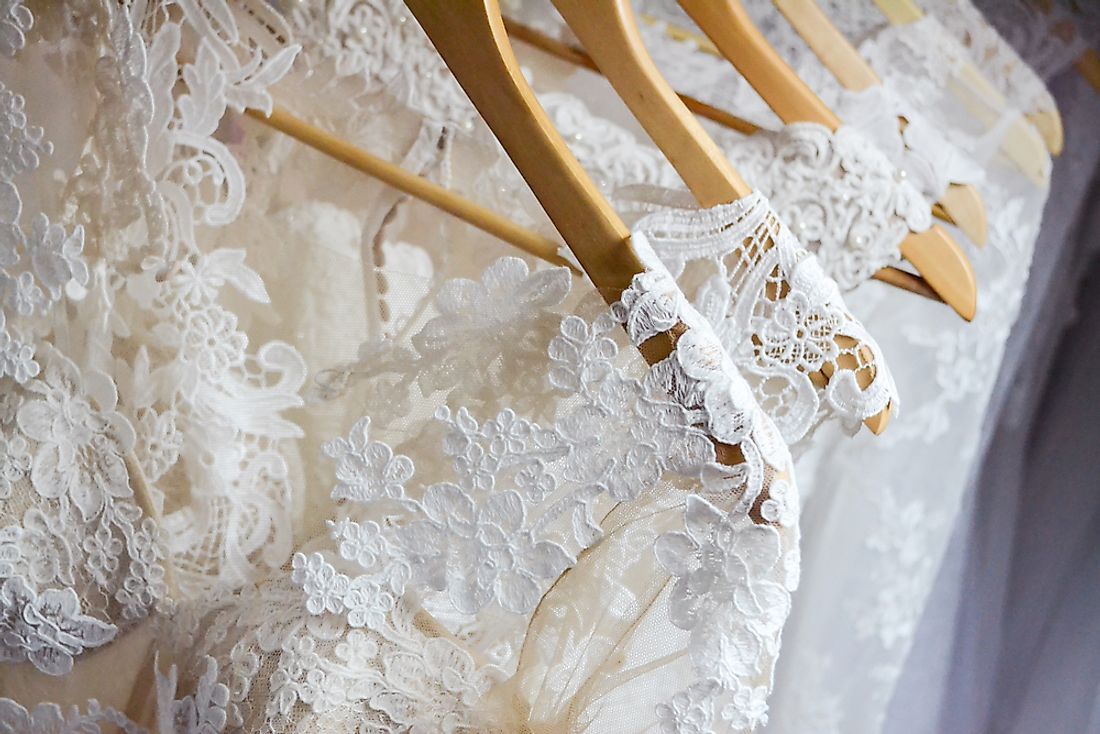The History of the White Wedding Dress

When it comes to modern-day weddings, one of the first things that people think of is the bride walking down the aisle in a white gown. However, brides have not always worn white on their wedding day and the tradition is much more recent than some may realize. In fact, the whole tradition of wearing a white wedding dress originated with Queen Victoria (1819-1901) of the United Kingdom.
Wedding Dress Colors
Prior to Queen Victoria's 1840 wedding, yellow, blue, and red were common choices for many brides of the era. Even grey, black or brown would be worn. This was because dresses were expected to be re-worn for social events. Doing this was difficult with a white dress since it was much more certain to stain and most women could not afford to go out and have a new dress made.
Queen Victoria's 1840 Wedding
On February 10th, 1840, Queen Victoria married Prince Albert (1819-1861), the Duke of Saxe-Coburg and Gotha. However, the young queen broke the status quo of the time and chose to wear a lacy white silk-satin gown for her wedding. She designed the dress herself and used only British-made materials to show support for domestic commerce.
However, members of the court thought it much too restrained in color, considered it incredibly sedate and believed that it looked incredibly boring and simple. They were also perplexed that she eschewed ermine (fur coat) and even a crown, as Queen Victoria decided instead to wear a simple orange blossom wreath.
While her wedding dress may look relatively fancy to many of us today, most people at royal weddings back then expected to see elaborate jewels, ermine-trimmed robes and mainly silver-colored gowns. The fabric of such a dress would have also been woven with either silver or gold. This was to show that the bride came from an extremely wealthy family that could literally make her a dress out of money.
Changing the Status Quo
Queen Victoria was not the first royal to wear white on her wedding day. Several others did so before her, most notably Mary Queen of Scots (1542-87) for her 1558 wedding to the King of France Francis II (1544-60). However, Queen Victoria is widely credited with changing the norm and popularizing the tradition of wearing white on one's wedding day.
In 1849, almost a decade later, the popular lady's monthly Godey's Lady Book referred to white as “the most fitting hue” for a bride. However, the change would have its detractors, as an 1850 wedding bill stated: “Of what use is the costly white silk bridal dress”, with it going on to say that the color would make it impossible to wear again.
The trends soon gained more traction among the elite and wealthy on both sides of the Atlantic as accounts of Queen Victoria's wedding spread. In 1865, The Etiquette of Courtship and Matrimony claimed, "A Bride’s costume should be white, or some hue as close as possible to it."
At the close of the 19th-century, white had become the color of choice for the wealthy but would not become a trend among the middle class until World War II (1939-45) ended. This was partly due to the increased prosperity that took place and the portrayal of weddings in Hollywood movies following the war. Since then the white wedding dress as become an entrenched part of Western culture.











